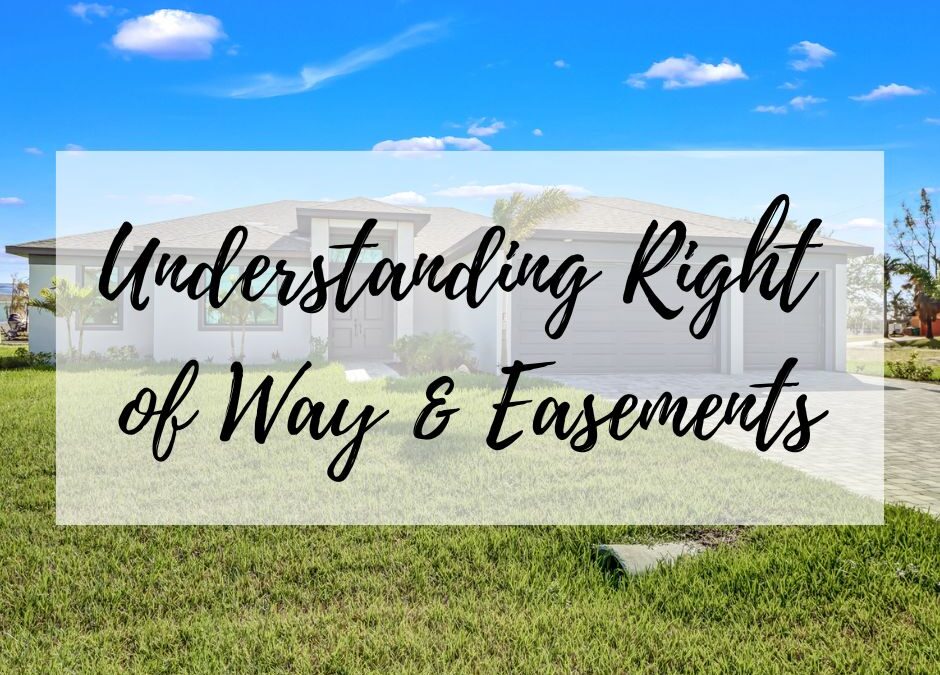When you purchase property it’s important to know key terminology you will hear when a survey is obtained showing boundaries of the land. Here are some common terms you will most likely hear.
What is A Right of Way?
Right of way is the legal right to pass through the grounds or property someone else owns and the right to build or operate a road on the land. These can be public or private and are common if your property cannot be accessed without going through someone else’s. They grant the holder of the right of way the right to travel over another’s property. Right of way easements are the most common type of easement.
What is an Easement?
Easements are the legal right granting an easement holder permission to use another’s property for a specific purpose. A common use of easements is when utility companies need to access power lines or cables on your property. Another example of this is if someone couldn’t access their land without crossing over their neighbor’s property, they can. Common easements in communities include drainage, access, utility, power, gas, water, mineral, navigation, and pedestrian access. Homeowners can have a negative easement when they are prevented from building something that interferes with it.
What are Utility Easements?
Utility easements give utility companies the right to access an easement on private property. These are commonly found in communities and benefit homeowners because they give them access to running water, electricity, cable, and sewer systems. If any issues arise, they can access the utilities to fix them as well as make decisions on whether they need to install new equipment that will benefit the community. Allowing utility easements lets these companies effectively maintain their systems to protect our water, wastewater, and storm drainage systems. Having an easement on your property means you cannot block or hinder the easement holder from accessing it. This means that a utility easement can be accessed to update and install equipment on the easement whenever they need to.
Can Easements and Rights of Way be Granted?
Yes, easements and right of ways can be granted by the landowner to another by a will, deed, or contract. Another way to be granted an easement is through adverse possession. This is when someone uses the land of another through hostile methods. In this context, hostile methods mean that the person who is claiming possession of the disputed piece of land must demonstrate that their possession is an invasion or infringement of the owner’s property. The possession infringes on the rights of the owner. Having an easement granted to you does not give you the right to sell the land, you only have the right to use it. The landowner is the only one who has the right to sell it.
Conclusion
In our local area, the common easements are utility easements for water, sewer, electric, and internet. Our new home specialists can answer any questions you may have about building a home with us. Contact us today if you are ready to get started building your home.



